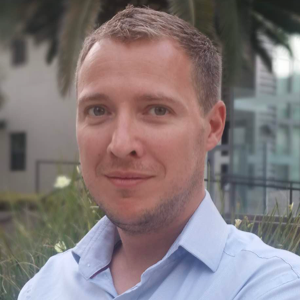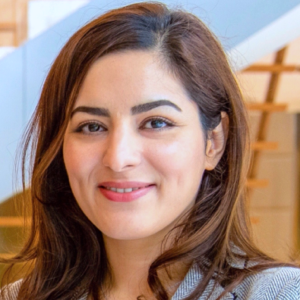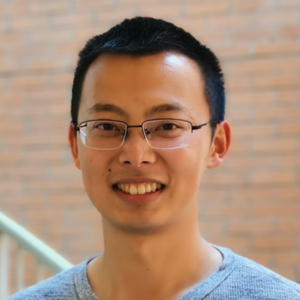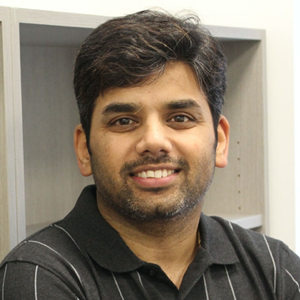New Faces
New Faces at Columbia Engineering

JAMES ANDERSON
Assistant Professor, Electrical Engineering
DPhil, University of Oxford, 2012; MA, University of Oxford, 2013; MSc, University of Reading, 2006; BSc, University of Reading, 2005
James Anderson works at the interface of robust control, optimization, and data science. He develops theory and algorithms for distributed decision-making in the presence of uncertainty, with applications such as optimal power flow problems (with a focus on energy networks with renewable energy sources) and model-order reduction for biochemical reaction networks. His current projects include designing mechanisms that allow datasets to be made publicly available while providing privacy guarantees to owners of sensitive data, and a new computationally tractable approach to distributed control, known as system level synthesis. He has taught at St John’s College and St Hugh’s College at the University of Oxford, and the California Institute of Technology. He was a senior research scientist at Caltech before joining Columbia. He will teach courses on the mathematical theory of cyber-physical systems and systems theory for autonomous networks.

ELHAM AZIZI
Assistant Professor, Biomedical Engineering; Herbert and Florence Irving Professor of Cancer Data Research, Irving Institute for Cancer Dynamics
PhD, Boston University, 2014; MS, Boston University, 2010; BS, Sharif University of Technology, 2008
Elham Azizi joins Columbia with a joint appointment in the Department of Biomedical Engineering and the Irving Institute for Cancer Dynamics. Her research focuses on characterizing the complex populations of interacting cell types in the tumor microenvironment and their underlying circuitry using cutting-edge, single-cell genomic technologies. She uses an interdisciplinary approach to develop statistical machine learning methods for analyzing and integrating single-cell data and applies them to studies of dysregulation in cancer and immune cells, as well as response or resistance to immunotherapies. These interpretable models help guide improved and personalized cancer therapies. She is the recipient of the National Institutes of Health Pathway to Independence Award, the Tri-Institutional Breakout Prize for Junior Investigators, and an American Cancer Society Postdoctoral Fellowship. She was a postdoctoral researcher at Memorial Sloan Kettering Cancer Center in the Dana Pe’er Lab (previously at Columbia University) in the Computational & Systems Biology Program. She was also a visiting researcher in statistics at Harvard University.

BOLUN XU
Assistant Professor, Earth and Environmental Engineering
PhD, University of Washington, 2018; MS, Swiss Federal Institute of Technology Zurich, 2014; BSE, Shanghai Jiao Tong University, 2011; BSE, University of Michigan (dual BSE), 2011
Bolun Xu’s research focuses on energy system planning and operation. He proposes algorithms and market designs toward economic, reliable, and sustainable energy supplies for humanity. His research promotes the integration of alternative energy resources such as energy storage and renewable generations. He will teach courses on the modeling and optimization of energy systems and electricity markets. Xu is the recipient of the Scientific Achievement Award from the University of Washington Clean Energy Institute, a Clean Energy Institute Graduate Fellowship, and a Grainger Foundation Fellowship. He was a postdoctoral associate at MIT before joining Columbia.

VIJAY VEDULA
Assistant Professor, Mechanical Engineering
PhD, Johns Hopkins University, 2015; MTech, Indian Institute of Technology, Kanpur, 2009; BTech, National Institute of Technology, Trichy, 2007
Vijay Vedula’s expertise lies in computational modeling of fluid flow in and around complex moving bodies, and patient-specific cardiac and vascular flow modeling. He develops methods for 4D image-based modeling of blood flow in the heart, in both disease and development. He is also interested in multiphysics modeling and fluid-structure interaction, biomechanics, biomedical device design, and numerical methods and high-performance computing. He is the recipient of the Gordon L. and Beatrice C. Bowles Fellowship at Johns Hopkins University, the IIT Kanpur Academic Excellence Award, and the GE Foundation Scholar-Leader Award. He was a postdoctoral research assistant at the University of California at San Diego and Stanford University, where he was awarded a fellowship from the Stanford Child Health Research Institute. He previously worked as an engineer at GE Aviation and Tridiagonal Solutions.
